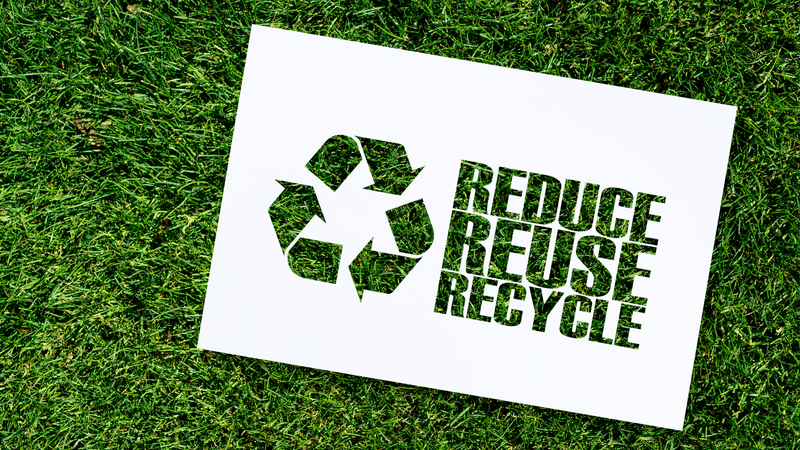Circular economy. Have you ever heard of this term? If so, do you really know what it means? Do you know why someone like you should care about it? Do you know the benefits of implementing it into your business?
If your answer to any of these questions is ‘no’, you might want to read through this guide and find out more about the circular economy and its benefits!
What is the circular economy?
Let’s start from the basics and learn what exactly the circular economy is.
In very simple words, the circular economy means that what comes around, goes around.
It’s a closed-loop production and consumption model that aims to extend the life cycle of products for as long as possible by sharing, reusing, leasing, repairing and recycling.
In the ideal world, a circular economy means that there’s no such thing as waste. But in practice, it means reducing waste to a minimum.

It’s the complete opposite of the linear economy model which is based on take-make-consume-dispose with no concern for the ecological footprint and consequences pattern.
Many businesses that produce goods have adapted the linear economy model.
Why?
Because it’s cheaper, allows them to keep up with trends and gain more money.
By relying on large quantities of cheap, easily accessible materials and energy, businesses can produce new goods as often as the trends change. The products are usually low quality and sold at affordable prices. As the products are made to have a limited life span, consumers are encouraged to buy them again and again.
This leads to overconsumption – the root of the planet’s environmental crisis.
When it comes to the circular economy, products are designed to last, as they are made from higher quality materials. And once the product reaches the end of its life, the materials are kept within the economy when possible and used again and again creating further value.
While it sounds like a great way to help our planet and slow down climate change, in reality, only 9.1 per cent of our world economy is circular.
A lot of businesses see it as a threat to their profits. Using higher quality materials means spending more money as well as increasing the prices of their products. This means that fewer customers can afford the products and those that can, won’t buy as often because products last longer.
But what if we told you that there are some great benefits of implementing a circular economy into your business?

Why implementing a circular economy is good for your business
It can actually increase your profits
Yes, switching to more durable materials can initially cost more. But it will help you save money in the long term.
For example, when you invest in higher quality materials and reuse them whenever possible, you also reduce costs associated with waste and energy consumption.
Once a product isn’t usable anymore, you can encourage your customers to send it back to you. This way can use parts of it to create new products and reduce your production costs.
It improves your brand reputation
These days, people are becoming more and more environmentally aware. They understand how their buying habits can affect the environment and look for more sustainable alternatives.
Moreover, more people are getting vocal on social media by criticising brands that are involved or staying quiet when it comes to topics such as waste, pollution, deforestation or using unsustainable materials. If your brand’s name gets in the centre of attention for any of these reasons, you are risking to damage your reputation. And getting it back can be difficult, while in some cases even impossible.
Consumers want to support environmentally friendly businesses. In fact, according to research, 57% of consumers in the UK are willing to pay more for products that are good for the planet.
Another research conducted by a packaging company has found that as many as 74% of consumers are willing to pay more for sustainable packaging.
If you implement a circular economy model into your business, you will not only please your current customers but will also attract new ones who are looking to buy from businesses that share the same values.
Also, if you start selling higher quality products that last longer, are made using sustainable materials and can be recycled, it will increase your customers’ trust and loyalty. And if they trust your brand and are pleased with not only your products but also your brand values, they’ll be more likely to buy from you again and spread the word about your business. This leads to more new customers, more loyal customers and, again, more profits!

You do something meaningful
It’s not always about the money.
Once you implement the circular economy model into your business, you know that you’re doing something meaningful. Actually, something very meaningful! You help to protect nature, tackle climate change, reduce waste and save the planet for future generations!
As a business owner, you get a chance to do what you love, help people by offering something that can solve their problems and make a living while doing it. And what could be better than doing all that without harming the planet?!
How to implement a circular economy into your business?
When you decide that it’s time to make a change in your business, remember, those changes require time – nothing happens overnight!
You need to create a plan, communicate with your team, suppliers and customers and make it one step at a time. The fact that you want to change your business and reduce your impact on the environment is already a big win!
To help you learn everything you need to know to become a sustainable business, we deliver the Innovation Green course.
From this course course you will:
- Develop methods to make your business economically, environmentally and socially sustainable
- Develop an understanding of climate change, sustainability and environmental protection
- Acknowledge the roles that business and industry play in protecting the environment
- Reduce your business’s environmental impact by more efficient use of resources

